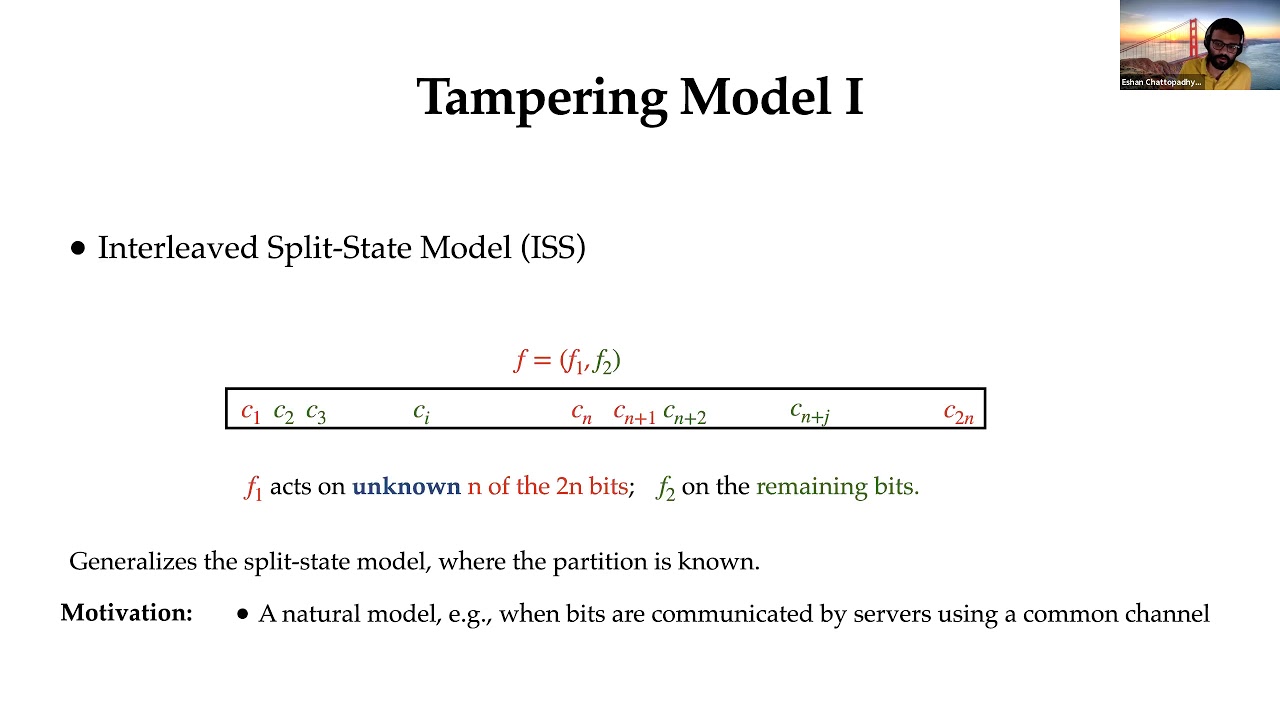Welcome to the resource topic for 2018/1069
Title:
Non-Malleable Codes, Extractors and Secret Sharing for Interleaved Tampering and Composition of Tampering
Authors: Eshan Chattopadhyay, Xin Li
Abstract:Non-malleable codes were introduced by Dziembowski, Pietrzak, and Wichs (JACM 2018) as a generalization of standard error correcting codes to handle severe forms of tampering on codewords. This notion has attracted a lot of recent research, resulting in various explicit constructions, which have found applications in tamper-resilient cryptography and connections to other pseudorandom objects in theoretical computer science. We continue the line of investigation on explicit constructions of non-malleable codes in the information theoretic setting, and give explicit constructions for several new classes of tampering functions. These classes strictly generalize several previously studied classes of tampering functions, and in particular extend the well studied split-state model which is a ``compartmentalized" model in the sense that the codeword is partitioned a prior into disjoint intervals for tampering. Specifically, we give explicit non-malleable codes for the following classes of tampering functions. (1) Interleaved split-state tampering: Here the codeword is partitioned in an unknown way by an adversary, and then tampered with by a split-state tampering function. (2) Affine tampering composed with split-state tampering: In this model, the codeword is first tampered with by a split-state adversary, and then the whole tampered codeword is further tampered with by an affine function. In fact our results are stronger, and we can handle affine tampering composed with interleaved split-state tampering. Our results are the first explicit constructions of non-malleable codes in any of these tampering models. As applications, they also directly give non-malleable secret sharing schemes with binary shares in the split-state joint tampering model and the stronger model of affine tampering composed with split-state joint tampering. We derive all these results from explicit constructions of seedless non-malleable extractors, which we believe are of independent interest. Using our techniques, we also give an improved seedless extractor for an unknown interleaving of two independent sources.
ePrint: https://eprint.iacr.org/2018/1069
Talk: https://www.youtube.com/watch?v=a7tj6v60B8M
See all topics related to this paper.
Feel free to post resources that are related to this paper below.
Example resources include: implementations, explanation materials, talks, slides, links to previous discussions on other websites.
For more information, see the rules for Resource Topics .
